Wellness
oi-Shivangi Karn
on December 18, 2020
Dietary oxalate is a plant-based compound found in many fruits, vegetables, dairy, grains and nuts. Unlike proteins, vitamins and minerals, oxalate in plenty may lead to the formation of kidney stones.
When we consume oxalate-rich foods, they break down in the digestive system and passes through the urine and stool. Also, in the intestines, oxalate binds with calcium molecules and get excreted easily.
However, sometimes due to inadequate water consumption, oxalate does not get flushed out properly from the system. Also, the low intake of calcium-rich foods increases oxalate in the body, leading to the formation of oxalate crystals, thus increasing the risk of kidney stones. [1]
In this article, we will discuss foods which are low in oxalate and are safe to be included in a daily diet. Remember, if you consume the below-mentioned foods in a large amount, it may increase the oxalate content in the body. Therefore, it is always best to add calcium sources such as milk, cheese and yoghurt, along with oxalate foods.
The recommended daily oxalate intake should be around 40-50 mg.

Fruits
1. Apples
Apples contain very less amount of oxalate. Researchers say that consuming an apple a day is very helpful in preventing the risk of kidney stones. You can toss some apple slices over a fruit salad bowl or consume with a glass of milk.
 Can Apples Help Prevent The Risk Of Prostate Cancer?
Can Apples Help Prevent The Risk Of Prostate Cancer?

2. Grapes
A study says that grapes can help reduce the formation of calcium oxalate stones by 50 per cent. This is because apart from being low in oxalate, they are rich in polyphenols, a type of antioxidants that may help prevent the formation of oxalate crystals and reduces the risk of nephrolithiasis or kidney stones.[2]

3. Lemons
Lemons are low in oxalate and consuming its juice may help prevent stone formation. Also, lemons are high in potassium and citric acid which tend to increase urine volume and flush out oxalate from the kidney. [3]

5. Papayas
A study mentions the antiurolithiatic potential of papayas in traditional medicines for the treatment of urinary stones. Papaya is widely known to reduce the risk of kidney stones formation and is considered good for the health of the kidneys. [5]
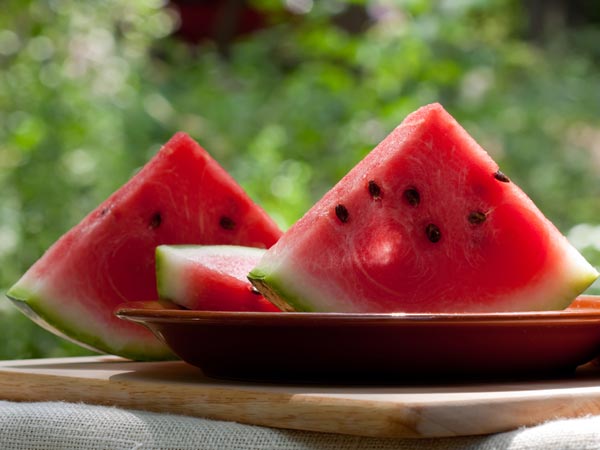
6. Watermelons
Watermelon is low in oxalate and the high potassium content in the fruit helps regulate the acid levels in the urine. Potassium acts as a natural dissolution of kidney stones and thus, prevents their formation.

7. Plums
Plums are low-oxalate fruits which can prevent the risk of stone formation in the kidneys. Plum juice is considered the best for the health of the kidneys. Also, consume a moderate amount of prunes (dried plums) as they contain slightly more number of oxalate than fresh plums.

Vegetables
8. Turnips
Green raw turnips are kidney-friendly as they are low in oxalate content. Also, they are high in potassium, vitamin C and fibre which contribute to the good health of the kidneys by increasing the urine volume. [6]
 14 Antioxidant-Rich Foods For Pregnant Women
14 Antioxidant-Rich Foods For Pregnant Women
READ RELATED: Vitamin B12 Benefits That You’re Probably Missing

9. Bok Choy
Bok choy, also known as Chinese cabbage is low in oxalate and high in calcium. They are good to taste and can be added to various curries and soups. Bok choy may help prevent kidney stones by reducing the absorption of oxalic acid in the intestines.

10. Yardlong Beans (Bodi/Bora)
Kidney stones start forming when due to dehydration, urine gets saturated and insoluble molecules of oxalate start crystallising. Yardlong beans contain less number of oxalate and thus, may help prevent the formation of oxalate crystals in the kidneys.

11. Cucumber
Cucumber acts as a natural dissolvent and helps dissolve tiny oxalate crystals. It helps the kidneys flush out extra uric acid from the body, which may crystallise and form kidney stones. [7] Make sure to eat cucumber without adding salt as it may cause an adverse effect.

12. Onions
Dietary habits play a vital role in the prevention of kidney stones. Chopped and fresh onions can be a part of a low oxalate diet and can reduce the risk of kidney stones to the maximum. Daily include them in your diet by adding to curries or soups or by eating them raw.

13. Coriander
Raw coriander leaves are very low in oxalate. Adding them to meals may help prevent the risk of calcium oxalate stone formation. Also, other nutrients in coriander leaves such as calcium, potassium and beta-carotene may help improve the kidney functioning.
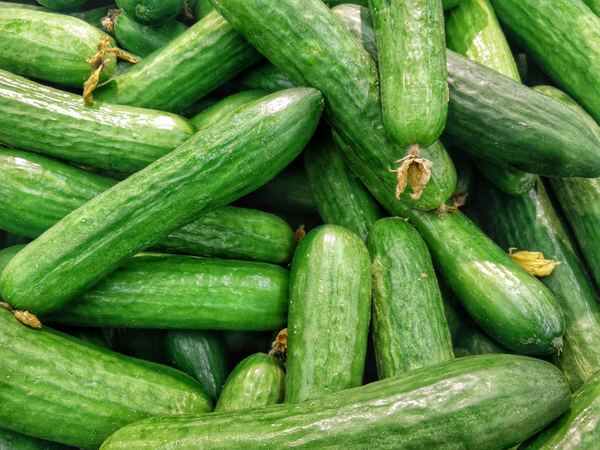
14. Zucchini
Zucchini helps prevent stone formation similar to cucumber and onions. They help increase the water content in the body, which further helps flush out oxalate crystals from the kidneys.
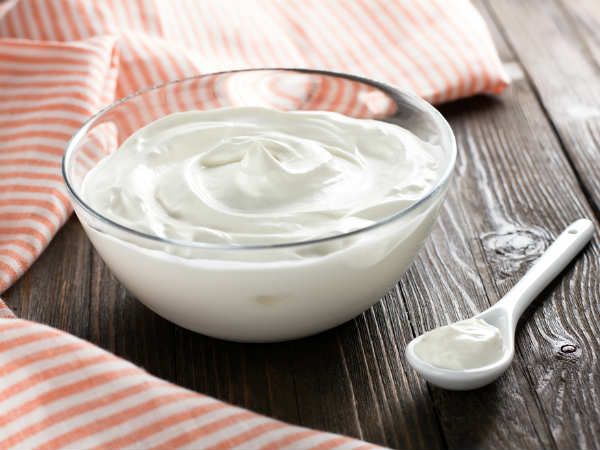
Others
15. Low-Fat Yoghurt
As aforementioned, calcium-rich foods have protective effects against the formation of kidney stones. According to a study published in the Clinical Journal of the American Society of Nephrology, low-fat yoghurt is high in calcium and thus, helps bind oxalate molecules and flush them out from the kidneys.
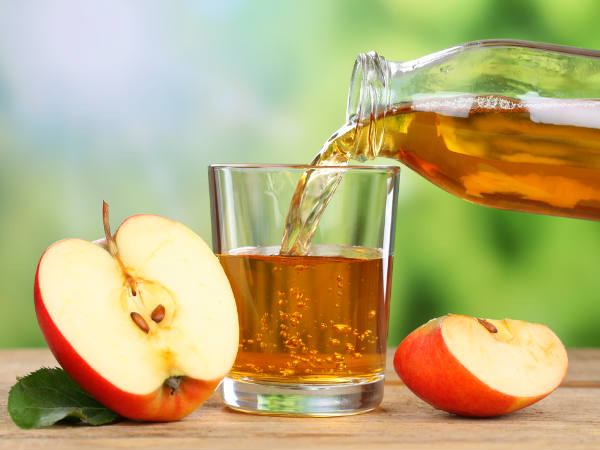
16. Apple Cider Vinegar
Apple cider vinegar is the most natural food item to reduce the size of kidney stones in people already with the condition. The acetic acid in the vinegar helps break down and dissolve the stones and also, prevents the formation of new stones. [8]
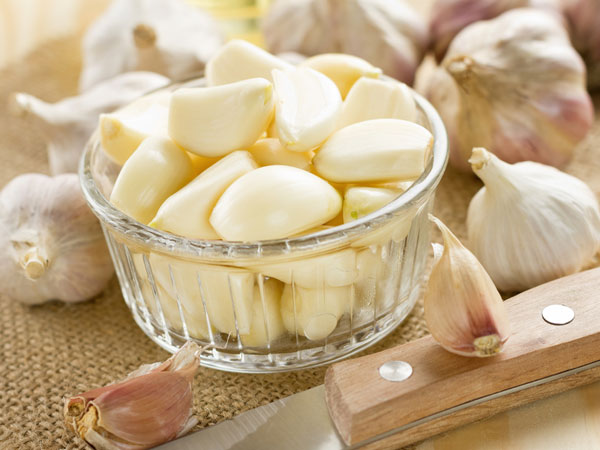
17. Garlic
Garlic is the best kidney-friendly spice which may help prevent oxalate crystallisation in the kidneys. The renoprotective effect of the garlic juice also helps repair the kidney-related injury and maintains its proper functioning.

18. Coconut Milk
Coconut milk has many significant roles in treating kidney problems, including kidney stones. Its hydrating nature may help prevent the risk of kidney stones. However, limit its consumption if you have chronic kidney disease. [9]
GET THE BEST BOLDSKY STORIES!
Allow Notifications
You have already subscribed
Source:



 15 Choline-Rich Foods For Pregnant Women
15 Choline-Rich Foods For Pregnant Women 12 Complications In Infants Born To Diabetic Mothers
12 Complications In Infants Born To Diabetic Mothers





